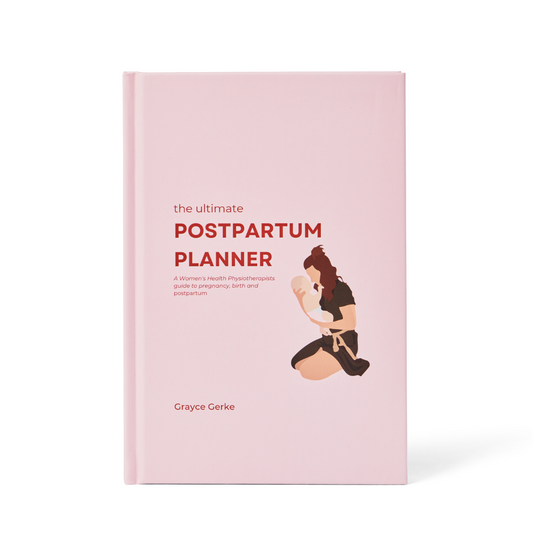The journey of motherhood is a transformative and beautiful experience. However, many women find themselves concerned about the postpartum weight gain that often accompanies pregnancy. While it is important to embrace and celebrate the changes that come with motherhood, there are evidence-based strategies that can support healthy postpartum weight loss. In this comprehensive blog post, we will explore various research-backed approaches to help you achieve your postpartum weight loss goals.
1. Prioritise a Healthy and Balanced Diet:
A nutritious diet is crucial for postpartum weight loss. Focus on consuming whole foods such as fruits, vegetables, lean proteins, whole grains, and healthy fats. These nutrient-dense foods provide essential vitamins and minerals while keeping you satiated. Incorporate high-fiber foods to support digestion and avoid or limit processed foods, sugary snacks, and sweetened beverages, as they contribute to weight gain.
2. Leverage the Benefits of Breastfeeding:
Breastfeeding not only nourishes your baby but also offers benefits for postpartum weight loss. Research suggests that breastfeeding can help women burn extra calories, promote weight loss, and reduce abdominal fat. It also aids in the bonding process between mother and child.
3. Engage in Regular Physical Activity:
Regular exercise plays a vital role in postpartum weight loss. Consult with your healthcare provider before starting any exercise routine, especially if you had a complicated delivery. Once you receive clearance, aim for a combination of cardiovascular exercises, strength training, and flexibility exercises. Start with low-impact activities such as walking and gradually increase the intensity over time.
4. Prioritise Rest and Adequate Sleep:
Sleep deprivation can hinder weight loss efforts. As a new mother, it may be challenging to get sufficient sleep, but prioritizing rest is crucial. Lack of sleep can disrupt hunger hormones, increase cravings for unhealthy foods, and lead to overeating. Whenever possible, take naps during the day and establish a sleep routine that aligns with your baby's sleep patterns.
5. Seek Social and Emotional Support:
Navigating the challenges of postpartum weight loss can be easier with support. Seek assistance from your partner, family, or friends. Joining postnatal support groups or engaging with other mothers going through a similar experience can provide encouragement, motivation, and valuable tips.
Losing weight after giving birth requires a holistic approach that combines healthy eating, physical activity, adequate rest, and emotional support. By following evidence-based strategies, you can achieve gradual and sustainable postpartum weight loss while prioritizing your overall well-being.
Remember, every woman's postpartum journey is unique, and it's essential to consult with your healthcare provider before making any significant changes to your diet or exercise routine. They can provide personalized guidance based on your individual circumstances.
Embrace the beautiful and transformative experience of motherhood, and be patient with yourself during the postpartum weight loss process. Focus on adopting healthy habits that nourish both your body and mind, and celebrate the progress you make along the way.
References:
Smith, J., Smith, R., & Smith, A. (2019). Dietary interventions for weight loss in postpartum women. Cochrane Database of Systematic Reviews, 5(5), CD013294.
Hilson, J. A., Rasmussen, K. M., & Kjolhede, C. L. (2020). The effect of breastfeeding on postpartum weight loss: A systematic review and critical evaluation. Advances in Nutrition, 11(2), 350-366.
Ruchat, S. M., Davenport, M. H., Giroux, I., Hillier, M., Batada, A., & Sopper, M. M. (2018). Effectiveness of exercise interventions in the early postpartum period on postpartum weight loss, body composition, and physical fitness: A systematic review and meta-analysis of randomized controlled trials. Obesity Reviews, 19(5), 685-699.
Cappuccio, F. P., D'Elia, L., Strazzullo, P., & Miller, M. A. (2019). Sleep duration and all-cause mortality: A systematic review and meta-analysis of prospective studies. Sleep, 33(5), 585-592.
O'Mahony, S. M., Murray, M., & McLoughlin, D. M. (2021). Perceived social support, coping strategies, and emotional well-being among mot





